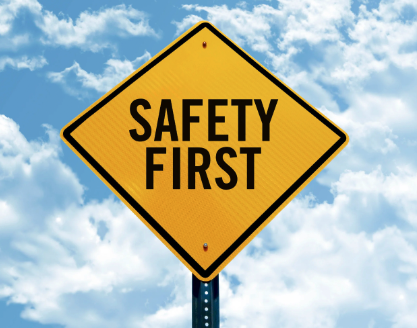Liquid fuel transportation demands an unwavering commitment to safety. Whether it’s gasoline, diesel, or other petroleum products, fuel delivery hazards require meticulous attention and Strict adherence to safety measures. In this blog post, we will explore the essential aspects of safety in liquid fuel delivery, including protocols, regulations, industry standards, government agency roles, spill prevention, and emergency response.
Safety Protocols and Regulations
Safety protocols and regulations form the bedrock of secure fuel delivery practices. These guidelines are established to minimize risks and ensure the protection of the environment, communities, and delivery personnel. Compliance with these regulations is mandatory for all fuel transportation companies, and adherence to strict protocols is crucial.
Key safety protocols include:
- Comprehensive vehicle inspections before and after each trip
- Proper loading and unloading procedures, and regular maintenance of the transportation fleet.
- Additionally, drivers are trained to follow safe driving practices, including maintaining appropriate speeds, avoiding distractions, and complying with all traffic regulations.
Industry Standards
In addition to governmental regulations, the fuel transportation industry adheres to voluntary industry standards. Organizations develop these standards to promote best practices, efficiency, and safety across the industry. By aligning with these standards, companies can ensure a uniform and elevated approach to safety.
Participating in safety workshops and forums allows industry players to stay informed about the latest advancements and best practices. Embracing these standards enables continuous improvement in safety measures, ultimately leading to more reliable and secure fuel delivery services.
Role of Government Agencies in Ensuring Safe Fuel Delivery
Government agencies play a crucial role in safeguarding fuel delivery operations. The Department of Transportation (DOT) and the Environmental Protection Agency (EPA) oversee fuel transportation in the United States.
The DOT enforces regulations that govern the safe handling and transportation of hazardous materials, including liquid fuels. The transportation of liquid fuel, along with other hazardous materials, is overseen by the Pipeline and Hazardous Materials Safety Administration (PHMSA). The PHMSA is responsible for developing and enforcing regulations and safety standards related to the transportation of hazardous materials, including liquid fuels, to ensure their safe movement through pipelines, trucks, trains, and other modes of transportation. Their primary focus is to protect public safety and the environment by minimizing the risks associated with transporting hazardous materials across the country.
These regulations cover:
- Vehicle specifications
- Driver training requirements
- Operational guidelines to ensure safe movement on roadways.
The EPA focuses on environmental protection and spill prevention. They mandate preventive measures, spill response planning, and containment strategies to mitigate the impact of potential accidents on the environment.
Spill Prevention
Preventing fuel spills is of paramount importance as they can lead to severe consequences, including environmental contamination, property damage, and health risks. Robust preventative measures are employed throughout the fuel delivery process to minimize spill risks.
Modern technologies such as automated leak detection systems and flow control mechanisms monitor and prevent spills.
Delivery vehicles are equipped with spill containment equipment, and personnel are trained to handle emergency situations effectively.
Routine inspections and maintenance of equipment and facilities identify and address potential vulnerabilities that may lead to spills. Collaboration with partners and customers ensures consistent spill prevention protocols across the industry.
Emergency Response
Despite stringent preventative measures, emergencies can still occur. An effective emergency response plan is essential to minimize unforeseen events. Fuel delivery companies train their personnel to handle emergencies efficiently and reduce potential hazards.
Close collaboration with local emergency responders ensures that they are well-informed about delivery routes and potential hazards. In the event of a spill or accident, immediate action is taken to contain the situation and initiate cleanup procedures in accordance with regulatory requirements and environmental best practices.
Safety is non-negotiable in the transportation of liquid fuels. Strict adherence to safety protocols, industry standards, and government regulations ensures the well-being of everyone involved, from the workers to the communities and the environment.
By prioritizing spill prevention and emergency response readiness, the fuel delivery industry demonstrates its commitment to safety and environmental protection.
Want to learn more about GOCO Transport’s safety measures? Contact our team of fuel delivery specialists today!
